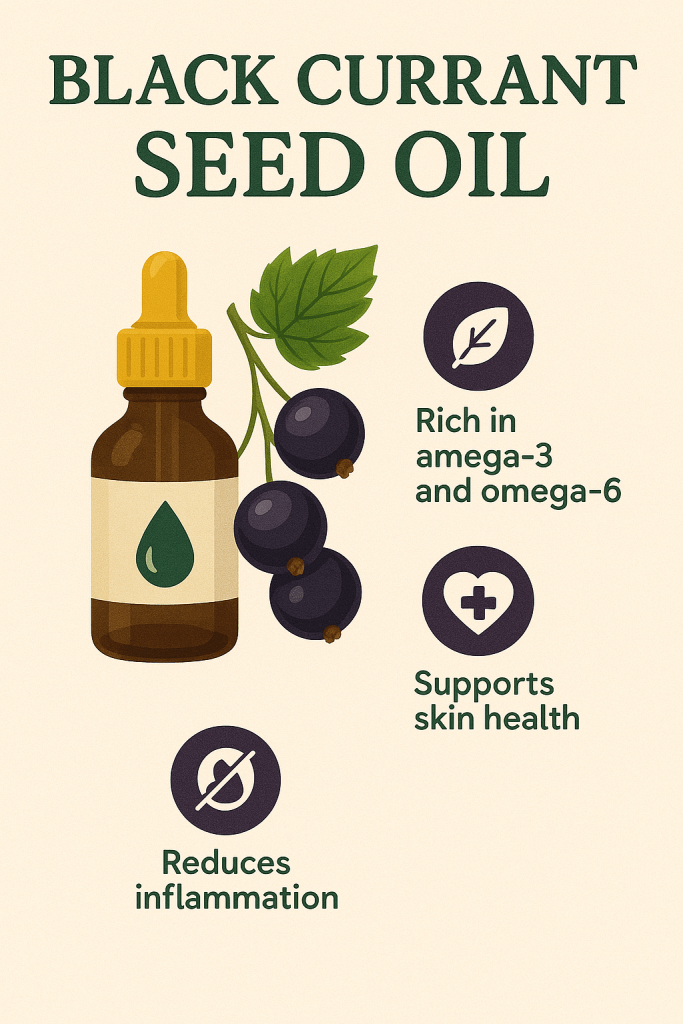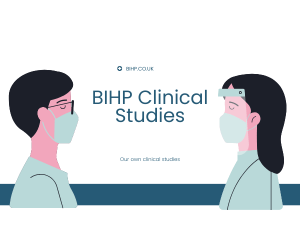Black Currant Seed Oil: A Seriously Underrated Fix for Dry Eyes and More
Black currant seed oil might not be the first thing you think of when your eyes feel dry, sore, or just generally over it — but maybe it should be.
Because let’s face it — we put our eyes through a lot. Screens. Late nights. Squinting into bad lighting. And when they start pushing back, most of us don’t reach for nutrition — we reach for drops or stronger glasses.
That was me too. Until I found this.
What Actually Is Black Currant Seed Oil?
You’ve heard of blackcurrants, right? Tart little berries. Good in jam. Full of vitamin C.
Well, the oil comes from the seeds. Not the juice. Not the pulp. The seeds.
They’re cold-pressed — same way olive oil’s made — and what comes out is this golden oil rich in fatty acids most people don’t get enough of. Particularly gamma-linolenic acid (GLA) and alpha-linolenic acid (ALA). Fancy names, sure, but the short version? These are anti-inflammatory, skin-supporting, cell-loving fatty acids. And they’re brilliant for the eyes.
Black currant seed oil is valued for its natural fatty acid and antioxidant profile, with interest around how it may support skin, joints, and overall balance. If you’d like to explore how antioxidant-rich supplements can support everyday wellbeing, our antioxidant supplements content looks at options that complement a healthy routine.
Why I Started Looking Into Black Currant Seed Oil for Dry Eyes
I spend a lot of time staring at screens. Writing, producing, researching — all of it adds up. I blink less, I squint more, and by mid-afternoon, my eyes feel wrecked.
At first, I thought I needed new glasses. Or blue-light filters. Maybe I was just dehydrated. Tried all that. Still had that gritty, tired, “someone’s rubbed sand in my eyes” feeling.
That’s when I read about GLA and how it helps the glands that make the oily layer of your tears. If those glands work better, tears stay on your eyes longer — and dryness fades.
Makes sense, right?
Black currant seed oil happens to be one of the richest natural sources of GLA. It’s also easier on the system than fish oil (and doesn’t make you burp mackerel, which is a bonus).
What It Does (That I’ve Noticed)
Right, onto the good stuff. Here’s what I’ve found personally — and what’s backed up by the research too:
1. Dry Eyes? This Oil Genuinely Helps
No exaggeration. About two weeks in, my eyes just felt… calmer. I wasn’t reaching for eye drops all the time. They weren’t burning at night. That constant blinking to clear the blur? Gone.
It’s subtle, but real. If you’ve ever struggled with dry eye symptoms — especially if you’re on screens all day — this is worth a look.
2. It Supports Inflammation and Retinal Health
You know when you take something and you don’t notice anything dramatic, but somehow your joints feel a bit looser, your skin less reactive, and your eyes less tired?
That’s this stuff.
GLA and ALA are both brilliant at calming low-grade inflammation. The kind you don’t feel — but your body does. Especially around delicate tissues like the eyes.
3. It’s Plant-Based, Gentle, and Easy to Use
Fish oil’s good, don’t get me wrong. But for some people it just doesn’t sit well. Black currant seed oil is gentler. No reflux, no aftertaste. It’s vegan too, which is a big plus if that matters to you.
You’re getting omega-3 and omega-6 in balance, along with that rare GLA. That combo’s hard to find in plant-based sources.
Other Health Benefits of Black Currant Seed Oil
I started taking it for my eyes, but like most things in the body — it’s all connected. Here’s what else black currant seed oil is known to support:
-
Skin – If you’ve got dry, reactive, or flaky skin, GLA helps rebuild the lipid barrier
-
Hormones – There’s decent evidence around PMS and menopause relief
-
Joints – Less morning stiffness, more fluid movement over time
-
Immune response – Especially useful if you run hot (inflammatory types)
-
Cardiovascular health – Not a miracle, but it helps maintain balance
It’s not flashy. It just quietly helps things run smoother.
How to Take Black Currant Seed Oil Daily
Here’s what I did, and it’s worked well:
-
Start with 500–1000mg a day
-
Take it with food — it’s oil, it absorbs better that way
-
Go for cold-pressed, organic if possible
-
Stick with it — I noticed a difference after 10–14 days, but it built up from there
You can take it in capsules (easy) or liquid (less fun, but still doable). It’s not something you’ll “feel” overnight, but give it a chance.
Fish Oil vs Black Currant Seed Oil: Which Is Better?
Fish oil is great — no doubt. But it’s not the only option.
Black currant seed oil is plant-based and naturally contains GLA — which fish oil doesn’t have. It also has a better omega-6 to omega-3 balance for some people. And it’s usually easier to digest.
If you’re vegetarian, sensitive to fish products, or just after a gentler alternative, this is worth your attention.
Side Effects? Just One or Two to Note
It’s generally very well tolerated. The only caveat? It may have a mild blood-thinning effect. If you’re on blood thinners or scheduled for surgery, have a word with your GP first.
Otherwise, it’s a safe, easy addition to your daily routine.
Final Thoughts: Is Black Currant Seed Oil Worth Trying?
Short answer? Yeah.
If you’re tired of the dry, strained, “my-eyes-hate-me” vibe by 3PM — black currant seed oil is absolutely worth a shot. It’s subtle, gentle, and supports your eyes (and more) from the inside out.
It’s not a quick fix. But it’s a smart one.
And if you’re anything like me, it’ll sneak its way into your daily routine — and you’ll wonder how you managed without it.
Looking to build a full antioxidant routine?
Check out our post on blackcurrant seed oil benefits — it’s a brilliant companion to acerola. If you’re exploring powerful forms of vitamin C, you’ll also want to read about liposomal vitamin C and its benefits.
We hope you found the post good reading and informative, we have more articles on health benefits in our superfoods category.





